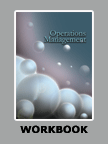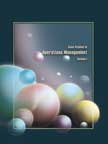Toyota Motor Company: Losing its Quality Edge?
|
|
ICMR HOME | Case Studies Collection
To download Toyota Motor Company: Losing its Quality Edge? case study
(Case Code: OPER095) click on the button below, and select the case from the list of available cases:

» Operations Case Studies
» Operations Short Case Studies
» View Detailed Pricing Info
» How To Order This Case
» Business Case Studies
» Case Studies by Area
» Case Studies by Industry
» Case Studies by Company 
Please note:
This case study was compiled from published sources, and is intended to be used as a basis for class discussion. It is not intended to illustrate either effective or ineffective handling of a management situation. Nor is it a primary information source.
Chat with us

Please leave your feedback

|




Abstract:
|
This case study is about quality management at Toyota Motor Corporation (Toyota), the world's leading automaker. Over the years, the Japanese automaker had built up a reputation for manufacturing reliable cars and trucks. Toyota's products were a byword for quality for customers so much so that its manufacturing techniques were followed by its competitors world over. Toyota's commitment to manufacturing world class and quality automobiles was entrenched in its entire manufacturing philosophy right through the development stages to manufacturing. At Toyota, quality was in built into each manufacturing process and employees from all divisions ensured that defective items did not pass on to the next process.
|

|
At the core of the company's success was the Toyota Production System (TPS), which made use of concepts like genchi genbutsu, Just-in-Time (JIT), Kaizen, Kanban, and Jidoka to reach a high level of efficiency in production.
Toyota recognized quality as one of the most important factors affecting customer satisfaction and strove to achieve excellence in manufacturing quality products. To ensure zero defects in the finished product, Toyota set up quality assurance systems across various divisions, including development, purchasing, and production. To overcome quality assurance problems caused due to rapid globalization, Toyota adopted the
"Toyota Way" - a set of management principles and communicated them to all its overseas manufacturing plants. Due to its efficiency in manufacturing, Toyota became one of the most trusted brands in the global automobile industry.
But some analysts felt that Toyota had become a victim of its own success. In the mid-2000s Toyota expanded its production facilities rapidly in a bid to grow globally and to achieve its goal of becoming the number one auto maker in the world. Toyota's rapid growth affected its product quality with the company reportedly compromising on its manufacturing techniques. Customers began to face safety related problems in Toyota vehicles. Later a series of recalls followed which put the company's hard-earned reputation for quality at risk. Analysts opined that constant recalls had damaged the reputation and brand image of Toyota and hindered its return to profitability. In a quest for market share, Toyota had sacrificed its legendary quality and ignored its own management principles and customers, they said. To verify the cause of recalls and improve quality, Toyota set up a committee headed by its president Akio Toyoda in early 2010. The committee was to inspect every process in the Toyota Production System to ensure delivery of quality products to customers.
Issues:
» Study quality management practices at Toyota that helped it earn a reputation for quality.
» Analyze the importance of quality in the Toyota Production System.
» Understand the manufacturing principles adopted by the Toyota Production System.
» Examine the reasons for the quality-related problems faced by Toyota.
» Discuss and debate whether Toyota was losing its quality edge.
» Explore strategies that Toyota could adopt in the future to regain its quality edge
Contents:
Keywords:
Quality management, Toyota Production System, Quality control, Recalls, Quality Assurance System, Quality problems, Total Quality Control, Lean manufacturing system, Toyota Way, Quality standards, Just-in-Time (JIT), Genchi genbutsu, Kaizen, Jidoka, Kanban, Pokayoke, Automobile industry, Toyota, Crisis management
Toyota Motor Company: Losing its Quality Edge?
- Next Page>>
|
|










